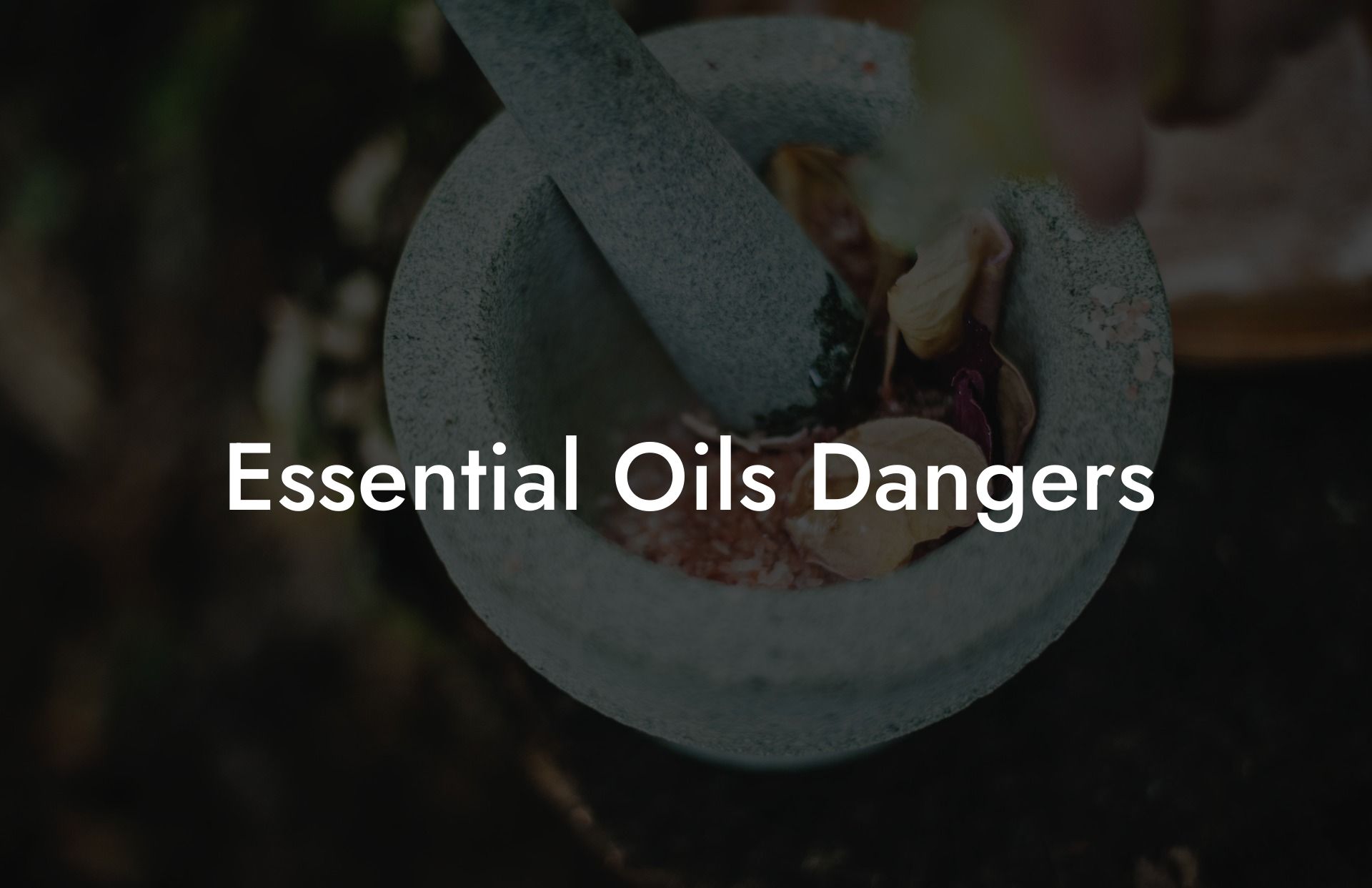Discover potential dangers associated with essential oils and how to safely use them to avoid any risks. You’ll be armed with the knowledge to improve your wellbeing while maintaining safety.
Table of Contents
Understanding Essential Oils
Essential oils are volatile, aromatic compounds extracted from plants. They have been used for centuries to provide natural healing, promote relaxation and enhance well-being. While these oils offer a host of benefits, it’s essential to understand potential dangers associated with improper use.
Essential Oils Dangers
1. Skin Irritations
Essential oils are highly concentrated which could result in skin irritations or allergies if improperly used or not diluted correctly. Signs of skin irritation include redness, itching, and burning sensations.
2. Photosensitivity
Some essential oils, particularly citrus oils, can cause skin photosensitivity, resulting in increased vulnerability to sunburn or skin pigmentation. Avoid sun exposure after applying these oils to your skin.
3. Ingestion Dangers
Essential oils are intended for external use only. Ingesting large doses of essential oils can be dangerous, causing poisoning and serious health issues. Seek medical attention immediately if essential oils are accidentally ingested.
4. Interactions with Medications
Essential oils may affect the way certain medications work, leading to unintended consequences. Consult with a healthcare professional before using essential oils if you are on medication.
5. Eye and Mucous Membrane Irritation
Being highly concentrated substances, essential oils have the potential to irritate eyes and mucous membranes. This can lead to stinging, itching, or burning sensations.
6. Respiratory Distress
For individuals with existing respiratory conditions or asthma, using essential oils with strong scents or misting them could trigger respiratory issues. Consult a doctor before incorporating essential oils into your routine.
Safety Tips for Using Essential Oils
– Always dilute essential oils with carrier oils like jojoba, olive, grapeseed or coconut oils. Typically, a 1-2% dilution is recommended for adults, and 0.5% dilution for children.
– Conduct a patch test on your skin before applying essential oils to larger areas.
– Use only high-quality, pure essential oils from a reliable source to ensure their safety.
– Store essential oils out of the reach of children and pets to avoid accidental ingestion.
– Avoid applying essential oils to broken, injured or irritated skin.
– If you have a pre-existing health condition or are pregnant, consult with a healthcare professional before using essential oils.
Essential Oils Dangers Example:
Jane is an essential oil enthusiast and recently learned about the potential dangers associated with improper use. She follows these safety guidelines:
– Dilutes lavender oil with a carrier oil before topical application.
– Avoids direct sun exposure after applying bergamot oil on her skin.
– Keeps her essential oil collection secured and out of her children’s reach.
– Consults her doctor before using essential oils due to her asthma.
Much like Jane, understanding and mitigating the potential dangers of essential oils empowers users to embrace their natural healing properties safely. If you found this article helpful, share it with friends and family who could benefit from this knowledge. Dive deeper into the world of essential oils with more guides on Oshu Oils and explore the Oshu Oils range of artisan essential earth oils to enhance your overall wellbeing.





















